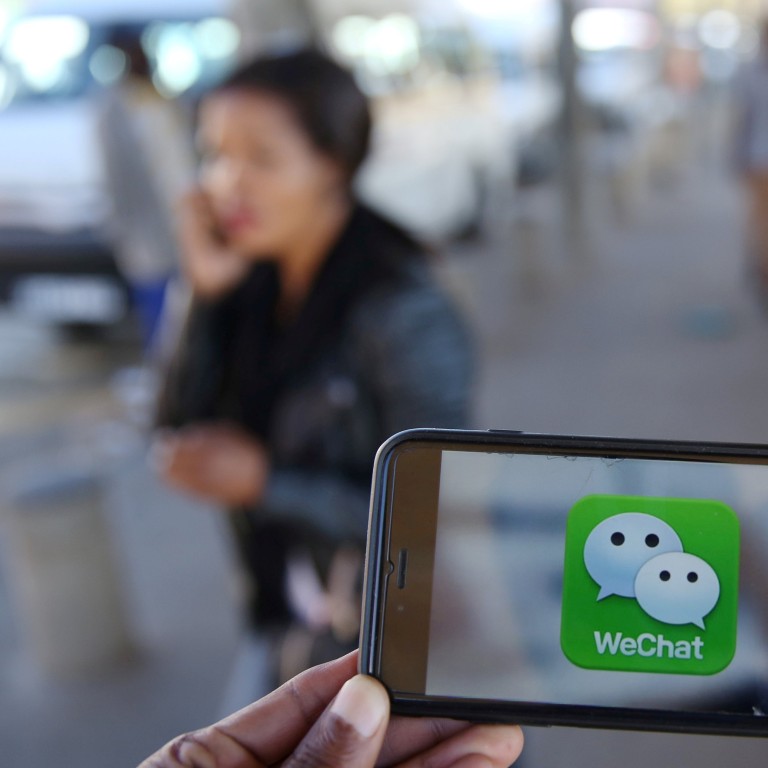
Tencent’s WeChat blocks learning apps from incentivising users to spam, saying it breaks rules
- Apps or users that repeatedly violate posting rules on links to other apps will have their WeChat accounts shut down
WeChat, China’s ubiquitous messaging and social media app operated by tech giant Tencent Holdings, has banned reading and learning apps from enticing WeChat users to share posts with links to the apps, dealing operators who bank on the platform’s huge user base a blow.
WeChat, which has more than 1 billion active users, named English learning apps including Liulishuo and Mint Reading among others as apps that had violated platform rules by luring users to share links through promotions such as tuition rewards and gifts on Moments, the social media section of WeChat.
Those apps or users who repeatedly violate posting rules in this way will have their accounts shut down, according to a statement on one of WeChat’s official accounts on Monday. The offending posts can often flood peoples’ Moments pages.
These violations have “severely damaged the user experience of Moments”, WeChat said in the statement, adding that links which do not offer incentives will still be allowed. A Tencent spokesman said the action was a standard crackdown on “enticed sharing” in accordance with WeChat’s existing rules.
The move could weigh heavily on so-called “social +” apps that leverage WeChat, China’s biggest social network, to grow their own user base by incorporating social elements that incentivise users to come back day after day. For instance, Mint Reading, an English-learning app from Chengdu Chaoyouai Education Technology, is a social education app that has gained a following by encouraging users to share daily progress on their WeChat Moments feed in return for incentives.
The educational app sees this as a way to hold users accountable for their own learning progress as well as increasing customer stickiness and loyalty.
WeChat’s content ecosystem, which allows brands, organisations and bloggers to set up public accounts and post articles, audio, photos and videos for their followers, has now become a target in an industry-wide “clean up” of online content by China’s internet watchdog, which is zeroing in on topics such as pornography, gambling and sensitive political issues.
The super-app’s restrictions on post sharing from external apps has prompted criticism from some that it is seeking to block competitors on its platform. In February WeChat called out rival platforms – including ByteDance-owned news aggregator Jinri Toutiao as well as short video apps Huoshan and Xigua, and NetEase Cloud Music – for luring WeChat users to share external links to their services through incentives.
However, WeChat has red-flagged ride hailing service Didi Chuxing and e-commerce services provider JD.com, both of which Tencent has a stake in, for violating platform rules before. Tencent also invested in a series D funding round for Chengdu Chaoyouai Technology, according to the company’s website.

